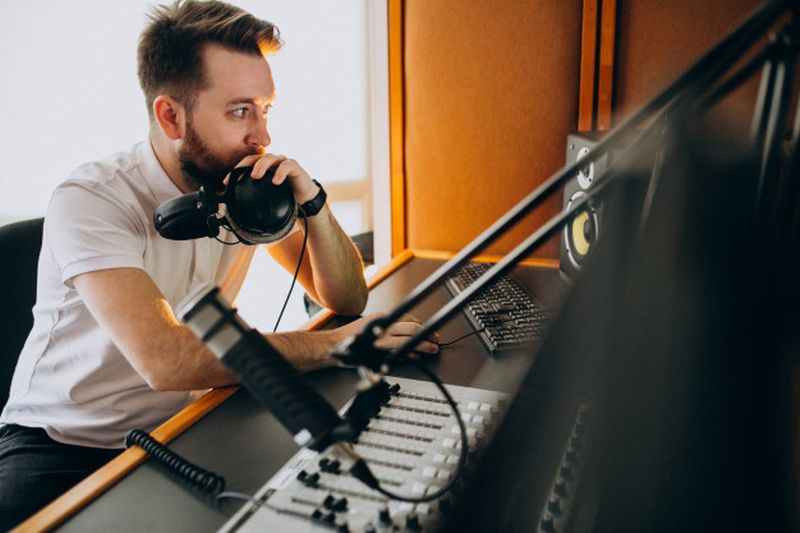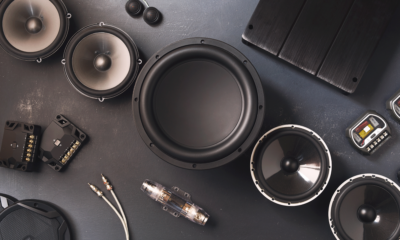4 Pros and Cons Of Using Audio Fingerprinting Technology in 2024
Creating unique content nowadays is very difficult because there is just too much content released. Things have gotten even more complicated because of the easy access to information through the Internet. Thousands of artists are releasing TV series, movies, sounds, animated series, and most commonly, music or some other type of audio. However, this does not mean that it is impossible to create something entirely unique. But, when you do create something, it is very important to have an audio fingerprint to prevent someone from stealing your idea or content.
But what exactly is an audio fingerprint, what does it do and why is it useful for content creators? Is expensive to implement? Is it mandatory to protect your creations? Well, all of these questions have a very long and complicated answer which is why I decided to write this article and talk more about this topic.
I wanted to explain to all the new artists about the advantages and disadvantages of using such technology. I hope that after you read this article, you will have a clear understanding of what this technology can do for you.
How does it work?
Before we can delve deeper into the pros and cons of implementing this technology into your content, we first have to cover the basics. You need to understand how it works before you can consider using it to your advantage.
Explaining the whole process in detail will make things much more confusing and complicated for both you and me. I do not understand how the process works because that is the job of an expert. But, the basics of how it works is quite simple. It basically works the same way as a regular fingerprint. It is a unique series of values (sounds) that can be used to identify a certain music piece, movie, song, or anything similar.
The companies that provide such a service have a database of thousands of audio fingerprints which they then used to identify content that is being shared online. Once the content has been identified, it can be taken down and retrieved for the original artist.
Pros

img source: freepik.com
Protects your work
With so many different platforms on the Internet that allow people to publish all kinds of content, it can be difficult to protect yourself against piracy and copyright infringement. Even the most popular platform on the Internet, YouTube, has a difficult time tracking down copyrighted content.
Users are constantly using, uploading, or sharing songs, movies, and other files that they do not own. This is illegal, but since there is a bit of anonymity online, not many of those people really care about the illegality of the situation.
Fortunately, if you apply an audio fingerprint to all of your tracks, you will be able to track any illegal use of your copyrighted material as suggested by intrasonics.com. Your audience will have a much harder time stealing it or pirating it.
Can boost your sales
For many artists, it can be very difficult to justify the price tag on these kinds of services. Sure, more successful artists will immediately hire such services, but those that are more independent do not really have the financial power to invest in an audio fingerprint.
This is understandable, but if you are prepared to share your tracks online on YouTube, Spotify, or SoundCloud, it is probably worth the money to invest in such protection.
Once you are protected from all of those pirates, there is a possibility that this could boost your sales considerably. Since the people that were not willing to buy your album or listen to it from reputable sources such as Spotify or something similar, they might reconsider their decision.
As an independent artist, I think that it is very important to try and boost your sales as much as you can. When starting out, reputation is much more important than profits.
It is very difficult to manipulate
This idea of an audio fingerprint has been around for a few decades. Over the years, this technology is constantly improving and advancing which helps companies stay ahead of pirates.
Nowadays, this technology is so advanced, it is very difficult to manipulate the fingerprint in the background of a song. No matter how much someone tries to play around with the frequencies or try to distort the sound, the audio fingerprint can still be tracked.
A great example of this can be noticed on YouTube. There are dozens of channels and users out there that are constantly uploading songs that have been slowed down or sped up. But, even then, with this technology, the copyrighted material can be found.
Cons

img source: freepik.com
It can be expensive
As you probably already figured out, this kind of service does not come for free. A lot of companies that offer such services come with a hefty price tag and there is a good reason for that. This kind of technology is very useful and it works very efficiently. It can be difficult to manipulate which is why it has such a great success rate.
Unfortunately, for a lot of independent artists, this kind of service can be inaccessible because of the price tag. Although I am sure there are companies out there that come with a much cheaper price tag, it is still going to get expensive if you try to add an audio fingerprint to an entire album of 10 or more tracks.
Whether this kind of service is worth the money or not, that is entirely up to you. If you think that a lot of your content is commonly pirated, maybe you should consider adding an audio fingerprint. It could help you in the long run.
There are probably a few other advantages, but I do not think there are any other disadvantages. Nevertheless, I think I covered the most important pros and cons of using audio fingerprint technology. After you read through this article, I hope that you will be able to make a sound decision that is going to help you in the future for your content.



















